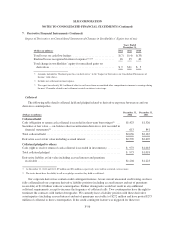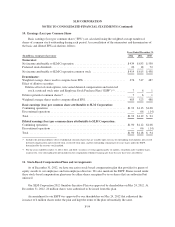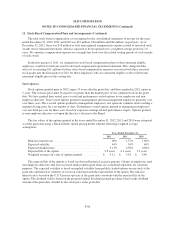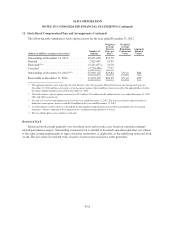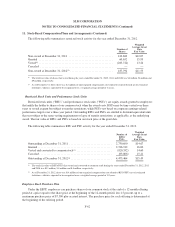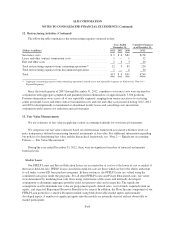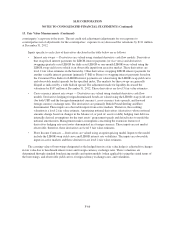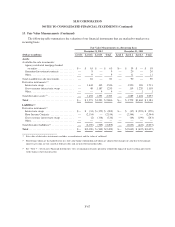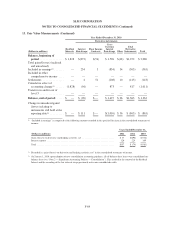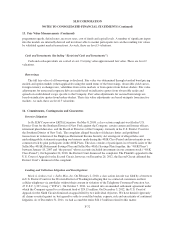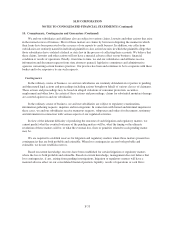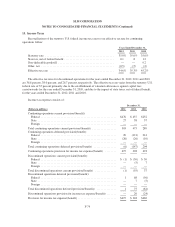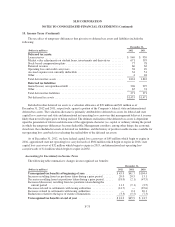Sallie Mae 2012 Annual Report Download - page 176
Download and view the complete annual report
Please find page 176 of the 2012 Sallie Mae annual report below. You can navigate through the pages in the report by either clicking on the pages listed below, or by using the keyword search tool below to find specific information within the annual report.SLM CORPORATION
NOTES TO CONSOLIDATED FINANCIAL STATEMENTS (Continued)
13. Fair Value Measurements (Continued)
counterparty’s exposure to the trusts. The net credit risk adjustment (adjustments for our exposure to
counterparties net of adjustments for the counterparties’ exposure to us) decreased the valuations by $111 million
at December 31, 2012.
Inputs specific to each class of derivatives disclosed in the table below are as follows:
• Interest rate swaps — Derivatives are valued using standard derivative cash flow models. Derivatives
that swap fixed interest payments for LIBOR interest payments (or vice versa) and derivatives
swapping quarterly reset LIBOR for daily reset LIBOR or one-month LIBOR were valued using the
LIBOR swap yield curve which is an observable input from an active market. These derivatives are
level 2 fair value estimates in the hierarchy. Other derivatives swapping LIBOR interest payments for
another variable interest payment (primarily T-Bill or Prime) or swapping interest payments based on
the Consumer Price Index for LIBOR interest payments are valued using the LIBOR swap yield curve
and observable market spreads for the specified index. The markets for these swaps are generally
illiquid as indicated by a wide bid/ask spread. The adjustment made for liquidity decreased the
valuations by $107 million at December 31, 2012. These derivatives are level 3 fair value estimates.
• Cross-currency interest rate swaps — Derivatives are valued using standard derivative cash flow
models. Derivatives hedging foreign-denominated bonds are valued using the LIBOR swap yield curve
(for both USD and the foreign-denominated currency), cross-currency basis spreads, and forward
foreign currency exchange rates. The derivatives are primarily British Pound Sterling and Euro
denominated. These inputs are observable inputs from active markets. Therefore, the resulting
valuation is a level 2 fair value estimate. Amortizing notional derivatives (derivatives whose notional
amounts change based on changes in the balance of, or pool of, assets or debt) hedging trust debt use
internally derived assumptions for the trust assets’ prepayment speeds and default rates to model the
notional amortization. Management makes assumptions concerning the extension features of
derivatives hedging rate-reset notes denominated in a foreign currency. These inputs are not market
observable; therefore, these derivatives are level 3 fair value estimates.
• Floor Income Contracts — Derivatives are valued using an option pricing model. Inputs to the model
include the LIBOR swap yield curve and LIBOR interest rate volatilities. The inputs are observable
inputs in active markets and these derivatives are level 2 fair value estimates.
The carrying value of borrowings designated as the hedged item in a fair value hedge is adjusted for changes
in fair value due to benchmark interest rates and foreign-currency exchange rates. These valuations are
determined through standard bond pricing models and option models (when applicable) using the stated terms of
the borrowings, and observable yield curves, foreign currency exchange rates, and volatilities.
F-66


